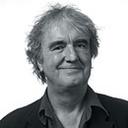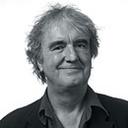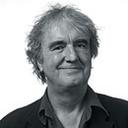 We are sorry to report the passing away of our dear friend and colleague Tony Tyler. What follows is a small tribute to him, a series of posts reflecting different parts of his life and times, his talents, his range, his intelligence, his humour - all of which we will miss greatly. [Pictures from the wake at The Royal Oak in Pett by Anna Chen]
We are sorry to report the passing away of our dear friend and colleague Tony Tyler. What follows is a small tribute to him, a series of posts reflecting different parts of his life and times, his talents, his range, his intelligence, his humour - all of which we will miss greatly. [Pictures from the wake at The Royal Oak in Pett by Anna Chen]To begin, two fine obituaries from colleagues Charles Shaar Murray and Chris Salewicz, in 'The Independent and The Guardian respectively:
James Edward Anthony Tyler, writer and editor: born Bristol 31 October 1943; twice married; died Hastings,
In his time on the New Musical Express, Tony Tyler was one of those rare, inspirational editors who can see every element of a story in a one-sentence description, and commission it on the spot: lengthy lunches discussing the piece held no interest for such a meteoric, extraordinarily intelligent and encouraging mind. Besides, only half of his teeming brain was focused on the job, as
Always hilariously funny in his writing, as a human being and in his editorial roles on the increasingly surreal NME in the mid-1970s, he arrived with a romantic past. "He was the only journalist on the music press who had carried a weapon in war," said Michael Watts, a rival editor on Melody Maker.
He had enlisted in the Royal Tank Regiment via a circuitous route. His father, from an upper-middle-class family, had been a fighter ace in the First World War. The experience had turned him into an alcoholic. Giving up drink, he married his nurse, who was much younger than him. Their only child, James Edward Anthony Tyler, was born on Hallowe'en night in 1943 in
Tony Tyler grew up in Liverpool, where he attended Liverpool College, at the age of 16 turning on prefects attempting another of their habitual beatings, and leaving before he could be expelled: he had one O-level, in English Literature. His mother died the next year. He became a police cadet, but quit when told his stammer was so extreme he would never be able to give evidence in court. (When people asked him later what cured his debilitating stutter,
But
After he was hospitalised with pneumonia,
When his father died in 1966,
Back in
He was brought into the NME in 1972 by the editor Alan Smith, who was re-launching the pop paper; Tyler's zest, hilarious verve and formidable energy made him a pivot of an editorial team that included Nick Logan, who succeeded Smith in 1973 and went on to found The Face, Charles Shaar Murray, Nick Kent and Ian MacDonald. With MacDonald, he formed a double act that informed the paper's humour. It was Tyler, who adored to debunk pomposity, who, when confronted with Bryan Ferry's latest sartorial extravagance, came up with the headline "How Gauche Can a Gaucho Get?"
In 1975, his first book was published, The Beatles: an illustrated record, an astute and amusing analysis of every recorded song by the group, a collaboration with Roy Carr, another NME editor. The next year
In 1982,
Fascinated early on by the very notion of computers, Tony Tyler plunged into that emerging world, trying to bring the same sense of NME absurdity to Big K, a computer magazine he started in 1983, but which folded. He celebrated his new fascination with technology with I Hate Rock & Roll (1984). He began to write columns for the magazines MacUser and MacWorld. These were only intended to fund his efforts to be a fiction writer. He completed several novels, none of which was published. "They were so intelligent," said his agent Julian Alexander, "with incredible flights of fancy, that I don't think they were easily understood."
Tyler, who viewed life as a cosmic joke, was wryly philosophical about the failure to place these books with publishers. As he was when confronted with his cancer, diagnosed only 11 days before he died. "Shit happens, but I'm completely cool with this," he said, phoning his friends to come and visit him. He was annoyed, he said, that he would never get to see Casino Royale, starring his godson Daniel.
"I want you to know, for when your time comes," Tyler told his wife, her sister and mother two days before he died, his curiosity about the mysteries of life and death undiminished, "that this isn't really too bad. It's quite dealable with."
Chris Salewicz
Tony Tyler
NME talent spotter, Tolkien expert and computer pundit
Charles Shaar Murray
If some of the New Musical Express's prominent writers were the faces of the 1970s paper, and editor Nick Logan and the late assistant editor Ian MacDonald functioned as its brain, then Tony Tyler, who has died of cancer aged 62, was its heart and soul. Features editor and later assistant editor during the early 70s, Tony, "the looming boomer", 6ft 5in in height with a resonant, drawling baritone, contributed irreverence and absurdist humour to the forging of the NME's identity.
He was also an author who once had two radically different books, The Tolkien Companion (1976) and The Beatles: an Illustrated Record (1975) - the latter a collaboration with his NME colleague Roy Carr - appearing simultaneously in the New York Times best-seller lists. A gadget freak, he became the founding editor of
TT, as he was almost universally known, led a rich existence. During a spell in the army, he was the last British soldier to be wounded by a musket-ball. As a teenage stowaway to
He was also godfather, albeit informally, to Daniel Craig, the new James Bond: TT had known the actor's father, Tim Craig, since they were seven years old. Since Ian Fleming was, along with PG Wodehouse and JRR Tolkien, one of Tyler's favourite authors, it was a major disappointment to TT to realise that he would not live long enough to see his godson play 007. "I'll never go to the cinema again," he said, "and I won't be around when the DVD comes out."
TT was born in
Feeling cast adrift, he signed up as a police cadet, but was told that his chronic stammer would prevent him from giving effective evidence in court. After stowing away to
Back in civilian life, he sold instruments by day and played guitar and organ in groups at night, until an Italian band kidnapped him for several years on the European club circuit. On his return to
Returning to London, he briefly edited the magazine Beat Instrumental before becoming a publicist for Emerson, Lake and Palmer - "I make no apologies," he later said, "though I would if I thought apology was sufficient " - but, finding both public relations and ELP uncongenial, he took the opportunity to join NME, then just about to start the radical rethink that transformed it from pop-picking chart fluff to a salon for gadflies. At the NME, Tyler demonstrated a keen eye for talent both musical and journalistic: an early champion of Roxy Music and Dr Feelgood, he was instrumental in the hiring of such writers as Nick Kent, Neil Spencer, Tony Parsons, Julie Burchill, Paul Morley, Vivien Goldman, Paul DuNoyer and Kate Phillips, with whom he fell in love and who subsequently became his second wife.
In addition to his NME duties, he wrote (as JEA Tyler) his Tolkien Companion, a massive concordance of all the people, places and things in The Lord of the Rings and its associated texts. The success of this and the Beatles book, co-written with Roy Carr, enabled him to leave the NME and retreat, with Kate, to a remote riverside cottage, which he soon filled with early personal computers. He became besotted with all things Macintosh, and his witty, anarchic punditry for magazines such as MacUser and Computer Shopper helped to keep him in fine wines and electronic keyboards for the remainder of his life.
His third book - a hilariously splenetic rant called I Hate Rock And Roll (1984) - was rather less successful, but remains a cult classic.
Outside his professional achievements, he will be remembered as a formidable autodidact who became expert on ancient and military history; as a right-wing libertarian who preferred to be surrounded by liberals and lefties "because most people who share my views are staggeringly unpleasant"; as a gourmet, oenophile and chef; as a genial host with unquenchable joie de vivre, determined to make sure everybody had fun; and as a man who remained urbane even on his deathbed. His last words, addressed to his 86-year-old mother-in-law, were: "I just want you to know, for when it's your turn, that this [dying] isn't actually so bad."
He is survived by Kate.
· James Edward Anthony Tyler, journalist, born


